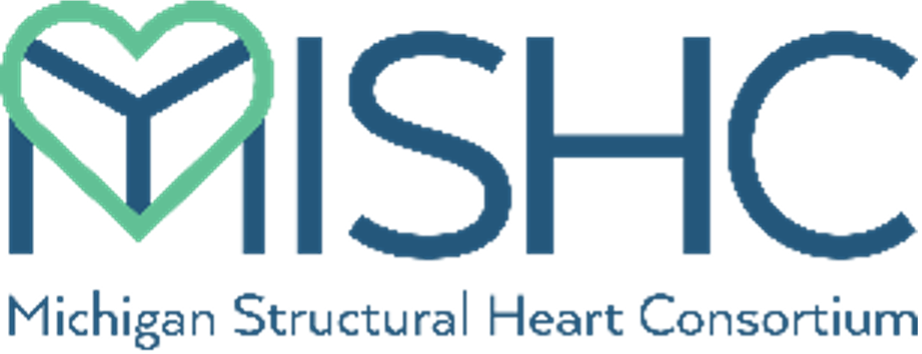
| |||
|
The Michigan Structural Heart Consortium expands focus to impact more Michigan patients Transcatheter aortic valve replacement, or TAVR, also known as TAVI or transcatheter aortic valve implantation, is a procedure for patients with aortic stenosis, a narrowing of the aortic valve opening in the heart. TAVR delivers a fully collapsible bioprosthetic valve to the valve site through a catheter, rather than open heart surgery. TAVR initially provided an alternative for people who needed valve replacement but were considered high or inoperable risk for open heart surgery. Now, the minimally invasive approach is the first option for many people, regardless of risk. “Through shared decision- making, the heart team (including both cardiologists and surgeons) and the patient discuss goals of care and develop a life plan that makes sense for each patient,” said Michael Grossman, M.D., MISHC co-program director and interventional cardiologist at Michigan Medicine. The Michigan TAVR consortium, convened in 2015, has long focused on supporting quality improvement related to TAVR procedures across Michigan, engaging with all 30 hospitals that have open heart surgery programs, and achieving significant in gains in goals affecting patients’ procedural experience and long-term quality of life.
Himanshu Patel, M.D., consortium co-director and surgeon, points out that “collaboration among interventional cardiology and cardio-thoracic surgery teams, spearheaded through the collaborative model of Michigan TAVR, has been critical to the quality improvement achievements of our consortium.” With the growing use of transcatheter mitral valve therapies (transcatheter edge-to-edge repair, or TEER, and transcatheter mitral valve replacement, or TMVR), Michigan TAVR is expanding its scope to include this important new area of quality improvement focus, and beginning in 2022, will report both TAVR and mitral procedure data to all Michigan hospitals, and convene stakeholders around data-driven QI initiatives, education and networking.
“We are thrilled about this new chapter in our consortium and are excited for the opportunity to improve the quality of care and outcomes for patients as use of transcatheter mitral procedures grows in Michigan,” says Stanley Chetcuti, M.D., MISHC co-program director and interventional cardiologist at Michigan Medicine. As part of this expanded scope, the consortium has also updated its name to the Michigan Structural Heart Consortium, or MISHC, to be more inclusive of the procedures on which it focuses and allow for future continued expansion. Additionally, MISHC has launched a new website, mishc.org, where you’ll find best practice protocols, a risk calculator, links to guidelines, and news and information about the consortium.
| ||||||||||||||||||||||||||||
Blue Cross Blue Shield of Michigan and Blue Care Network are nonprofit corporations and independent licensees of the Blue Cross and Blue Shield Association. |
 MISHC is a collaboration between the Michigan Society of Thoracic and Cardiovascular Surgeons Quality Collaborative, or
MISHC is a collaboration between the Michigan Society of Thoracic and Cardiovascular Surgeons Quality Collaborative, or